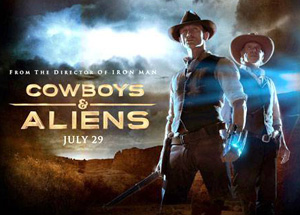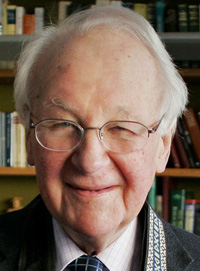Religion
Don't believe most of what you'll hear about Kevin Smith's new movie, Red State.
It is not an angry tirade against religion, nor is it an attack on Christianity guised as a horror flick laden with gratuitous violence.
Smith has described Red State as a horror film, and it is that, but not in the conventional Nightmare on Elm Street iteration. There is violence for sure, but nothing approaching the unrelenting bloodbath of, say, The Passion of the Christ.
More than 15 percent of the U.S. population now lives in poverty -- the highest rate in 18 years, according to a U.S. Census Bureau report released this morning.
Poverty has risen for the third consecutive year in a row, the new census figures show, with perhaps most distressing are the child poverty numbers, which rose from 20.7 percent in 2009 to 22 percent in 2010.
"The results aren't good," the Rev. Jim Wallis, president and CEO of Sojourners, the largest network of progressive Christians in the United States focused on the biblical call to social justice, said upon reviewing the census report today.
I'm sure it will end on September 12 when the news media go back to reporting the most urgent question of our time -- which GOP candidate will win the tea party debate on Monday night? -- but this past weekend's coverage of the 10th anniversary of 9/11 was relentless. (I know I could just turn off the TV, but when you write a blog on religion, culture, and politics, you gotta do the research).
The packaging of the 9/11 narrative, with its stunning visuals, has been masterful these last 10 years -- compelling, emotional, inspiring. And ratings gold.
But it strikes me that grieving-through-media does not serve us well, individually or collectively.
 "The man who can articulate the movements of his inner life," the late Christian apologist and author Henri Nouwen said, "need no longer be a victim of himself, but is able slowly and consistently to remove the obstacles that prevent the spirit from entering."
"The man who can articulate the movements of his inner life," the late Christian apologist and author Henri Nouwen said, "need no longer be a victim of himself, but is able slowly and consistently to remove the obstacles that prevent the spirit from entering."
Throughout the ages, how Christian believers have chosen to articulate their inner lives has had many manifestations in literature, music, architecture, and other artistic endeavors.
As a means of communicating and wrestling with his inner life -- his journey of faith -- Greg Fromholz, an American expatriate youth worker for the Church of Ireland in Dublin, wrote a book titled Liberate Eden, but traditional publishing houses found that his work was a bit too iconoclastic for their tastes.
"It is just too different to be Christian," one publisher pronounced.
Deep down I don't believe in the separation of church and state. Oh, I am against the idea of a state church or giving political preference to one religious sect or another, but it's the idea that somehow people can divorce their religious identity from their political identity that I just can't accept. That either our religion or our politics mean so little to us that we could restrict them to compartmentalized spheres in our lives seems absurd to me. I know people attempt to do it all the time, believing in the modern myth that an individual can assume an objective stance in this world, but reality is a lot more complex than that.
When our ideas about nature come primarily from Sierra Club calendars or selected snippets from Thoreau, an east coast earthquake and monster hurricane (in the same week) are powerful wake-up calls.
We modern urban dwellers and suburbanites like our nature contained and manageable: a nice hike in the woods; a pretty sunset on the drive home; a lush, green lawn (chemically-induced, alas)
Sometimes we like nature so much we decide to worship it -- or to make it the medium for our worship of God or the "higher power" we think might be up there, out there, presiding over it all. We've been wounded by organized religion, perhaps, disgusted by its hierarchies and hypocrisies. "I can worship God on a mountaintop," we decide. (Or -- conveniently, happily -- on the golf course).
On the morning of September 11, 2001, I was standing in the bathroom of my apartment outside Chicago, about to hop in the shower, when I heard the phone ring and then my husband call my name.
"It's Roger from the desk," he called, sleepily, invoking the name of the morning assignment editor at the Chicago Sun-Times where I was a reporter at the time.
I padded down the hallway in my pajamas to the living room and picked up the phone.
"How quickly can you get down here," Roger asked.
"I dunno, an hour, maybe," I said. "Why? What's up?"
"A plane hit the World Trade Center in New York," he said. "They think it's a terrorist attack."
I remember vividly the first time I went to a comic book shop with my mom. I'd sneaked there before. But this time was different. This time I'd come without pretense, openly confessing my love of the four-color art form. I was in the fifth grade.
While I perused the back issue bins in the middle of the shop, my mother looked from one rack to the next, her face slowly solidifying into a grimace. On one cover, a half-naked green man punched a half-naked rock man in the head. On another, a woman wearing spandex tight enough to be body paint draped herself over some sort of futuristic motorcycle. Eventually, my mother's eyes fell upon the cover of a sword-and-sorcery title near the cash register. Behind a tan, sinewy barbarian stood a harem of women, all wearing thin strips of well-placed linen. We left before I could make a purchase.
A week or two after the 2004 election, I was dining with some friends in New York when the conversation turned to religion and politics -- the two things that you're never supposed to discuss in polite company.
George W. Bush had just been re-elected with the help of what was described in the media as "evangelical voters." And knowing that I am an evangelical Christian, my friends were terribly curious.
"What, exactly, is an evangelical?" one gentleman asked, as if he were inquiring about my time living among the lowland gorillas of Cameroon.
I suddenly found myself as cultural translator for the evangelical mind.
"As I understand it," I began, "what 'evangelical' really means is that a person believes in Jesus Christ, has a personal relationship with him and because of that relationship feels compelled to share their experience of God's love with other people. "How they choose to share that 'good news' with others is entirely up to the individual. Beyond that, the rest is details and style."
Rev. Steve Stone was just trying to be a good neighbor.
Two years ago, the pastor of Heartsong Church in Cordova, Tennessee, on the outskirts of Memphis, learned that a local mosque had bought property right across the street from the church. So he decided some Southern hospitality was in order.
A few days later, a sign appeared in front of the church. "Heartsong Church welcomes Memphis Islamic Center to the neighborhood," it read.
That small act of kindness was the start of an unlikely friendship between the two congregations, one that made headlines around the world. Members of the mosque and church have shared meals together, worked at a homeless shelter, and become friends over the past two years. When Stone learned that his Muslim friends needed a place to pray for Ramadan because their building wasn't ready, he opened up the doors of the church and let them hold Ramadan prayers there.
In recent days I've been thinking through with a friend one of the enduring challenges of pastoral and catechetical ministry: how to dispel the notion that worship should be entertaining. It's not as hard as it used to be -- there are books (and blogs) on the subject; it gets preached on fairly often these days. But it's not as easy as it ought to be. It seems we are a species ever in need of amusement.
One of the most compelling arguments against the persistent idea that worship ought to entertain, dazzle, distract, or otherwise charm us is found in James Alison's insight that true worship is "orchestrated detox."
Over the past few weeks various news outlets have run stories on the so-called feminism of Sarah Palin and Michele Bachmann. Typical of the media, in order to make that claim, they, of course, had to assume that any woman doing anything in public equals some sort of feminist revolution. It is, however, a rapidly spreading idea. If the concept of successful women must be blamed on feminist action, then successful conservative women must be the result of feminism as well. Granted this new definition of "feminist" is, as Lisa Miller wrote for the Washington Post, "a fiscally conservative, pro-life butt-kicker in public, a cooperative helpmate at home, and a Christian wife and mother, above all." But apparently it's still feminism.
While many from the left were outraged by the idea of associating these arch-conservatives, who stand against many of the things historical feminists have supported, with feminism, others supported the idea. Naomi Wolf, who seems to have a love/hate relationship with feminism, wrote that the problem some have with calling those women feminists is that we don't understand the history of feminism. She argues (rightly in my opinion) that feminism has only become associated with leftist agendas since the 1960's, but was, in its origins, more balanced and open to conservative values. But then she explains her reasoning why:
I hate war. I do not hate it because people die. Death is inescapable. And believers believe that we will meet those we love again in heaven. I hate war with a perfect hatred because it causes suffering and robs the world of incalculable human possibilities. It pains the earth. It creates waste and the misallocation of resources.
Saturday, August 6, 30 Americans and eight Afghans were killed when Taliban insurgents shot down a Chinook transport helicopter. The New York Times called it: "the deadliest day for American forces in the nearly decade-long war in Afghanistan."
When the Alabama legislature passed their infamous, anti-immigrant law (HB 56), the religious community in the state immediately cried foul. Jim Wallis and other national leaders condemned the law as unjust and immoral.
HB 56, which will go into effect September 1, attacks virtually every aspect of immigrants' lives. Among many punitive measures, it authorizes police to detain anyone they suspect is undocumented, mandates criminal penalties for those who transport undocumented migrants, and demands that public schools determine the immigration status of all students.
 Whenever I give talks on the effects of the Israeli occupation on Palestinian livelihood, the status of nonviolence as a means to resisting the occupation, and how I believe nonviolence is the only way to move forward to resolve the conflict and create a lasting peace between Israelis and Palestinians, one of the first and immediate questions I get from foreign visitors to my office in Bethlehem is, What you said is good, but what about the Muslims? Do they also believe in nonviolence? Do they understand it?" Even if I don't mention religion in my presentation -- and I rarely do -- this question always seems to make its way in our discussions.
Whenever I give talks on the effects of the Israeli occupation on Palestinian livelihood, the status of nonviolence as a means to resisting the occupation, and how I believe nonviolence is the only way to move forward to resolve the conflict and create a lasting peace between Israelis and Palestinians, one of the first and immediate questions I get from foreign visitors to my office in Bethlehem is, What you said is good, but what about the Muslims? Do they also believe in nonviolence? Do they understand it?" Even if I don't mention religion in my presentation -- and I rarely do -- this question always seems to make its way in our discussions.
 Americans have a hard time knowing how to respond to the sins of our colonial past. Except for a few extremists, most people know on a gut level that the extermination of the Native Americans was a bad thing. Not that most would ever verbalize it, or offer reparations, or ask for forgiveness, or admit to current neocolonial actions, or give up stereotyped assumptions -- they just know it was wrong and don't know how to respond. The Western American way doesn't allow the past to be mourned or apologies to be made. Instead we make alien invasion movies.
Americans have a hard time knowing how to respond to the sins of our colonial past. Except for a few extremists, most people know on a gut level that the extermination of the Native Americans was a bad thing. Not that most would ever verbalize it, or offer reparations, or ask for forgiveness, or admit to current neocolonial actions, or give up stereotyped assumptions -- they just know it was wrong and don't know how to respond. The Western American way doesn't allow the past to be mourned or apologies to be made. Instead we make alien invasion movies.
 [Editors' note: Rev. John Stott, one of the world's most influential evangelical figures over the past half-century, died this Wednesday at age 90. Rev. Stott served as a contributing editor for Sojourners magazine, when we were known as The Post American, and wrote this article for the November/December, 1973 issue of the magazine. We will always remember Rev. Stott for his profound contributions to our community and the Church.]
[Editors' note: Rev. John Stott, one of the world's most influential evangelical figures over the past half-century, died this Wednesday at age 90. Rev. Stott served as a contributing editor for Sojourners magazine, when we were known as The Post American, and wrote this article for the November/December, 1973 issue of the magazine. We will always remember Rev. Stott for his profound contributions to our community and the Church.]
It seems to be a characteristic of the Anglo-Saxon mind to enjoy inhabiting the "polar regions" of truth. If we could straddle both poles simultaneously, we would exhibit a healthy balance. Instead, we tend to "polarize". We push some of our brothers to one pole, while keeping the other as our own preserve.
What I am thinking of now is not so much questions of theology as questions of temperament, and in particular the tension between the "conservative" and the "radical."
"And all ate and were filled; and they took up what was left over of the broken pieces, twelve baskets full. And those who ate were about five thousand men, besides women and children." --Matthew 14:13-21
Immediately before the story of the feeding of the 5,000 is a description of a very different sort of meal: John the Baptizer's head on a platter. And just as women and children are included among the multitude fed on the beach (a detail unique to Matthew's version of the story), the female sex is also represented in the account of John's demise: Herodias, sister-in-law of Herod, asks for the head of the Baptist; her nameless daughter, with no detectable squeamishness, delivers the request to the king and serves up the plated head to her mother. (That women in all of their moral complexity are present throughout Matthew's gospel - recall also the women who appear in the genealogy of Jesus in chapter one -- is an observation worthy of closer scrutiny. See, for instance, Jane Kopas's 1990 essay in Theology Today).
We have come to an impasse in the negotiations to raise the debt ceiling because of several conceptual errors in our public discourse. These errors were most glaring in the remarks recently delivered by Speaker of the House John Boehner in his response to President Obama. The largest conceptual error is the idea that the government of a constitutional representative democracy is different from the people. Boehner said, "You know I've always believed the bigger the government, the smaller the people."
What does this mean? The government is composed of the people, and if people are paying attention and voting according to their own interests, the government ought to work toward the happiness of the people. The problem is that too many Americans have bought into this conceptual error that the government is some kind of leviathan, a monster that exists to take away their liberties. This is nonsense. A correction of another conceptual error in Boehner's presentation makes my point.
As the time shortens for Congress and President Obama to agree to the contours of legislation to raise the nation's debt ceiling, I am reminded of the story of King Solomon and his judgment regarding two women who both claimed to be the mother of a child (I Kings 3: 16-28). Solomon ordered that the living child be cut in two and half a dead child be given to both women. The woman who was the true mother insisted that the living child be given to the false mother. She was willing to give up her righteous claim to save the child's life.